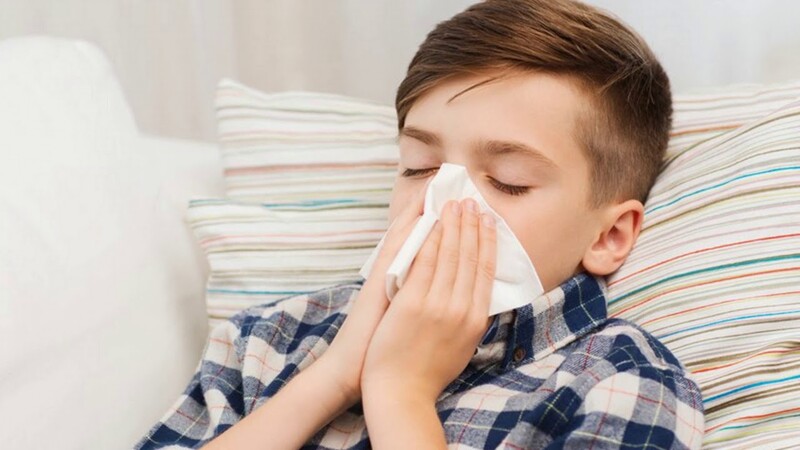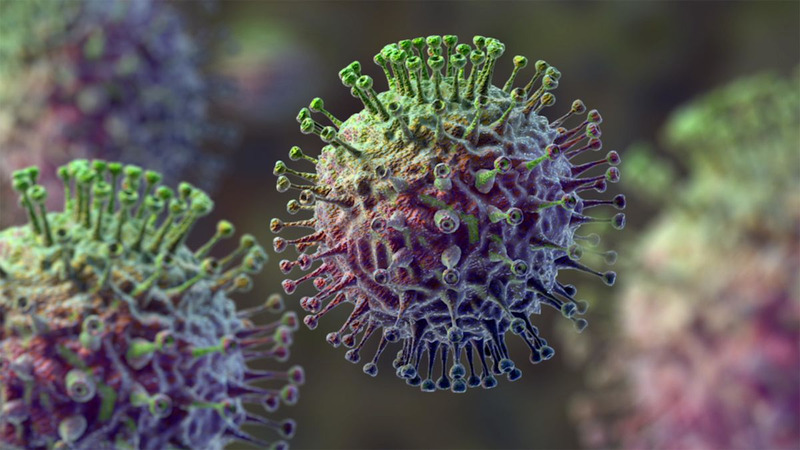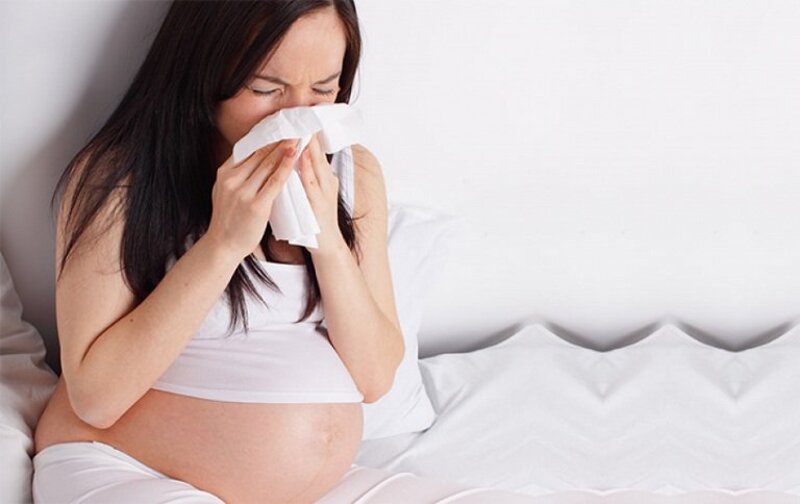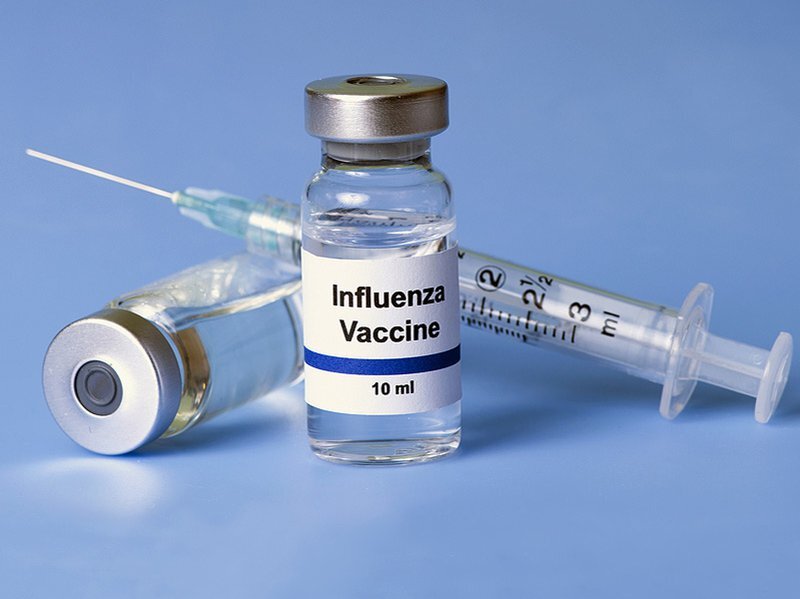1. Learn about the seasonal flu vaccine
Seasonal flu is a respiratory infection caused by influenza virus infection. There are many strains of influenza virus, but the most common is influenza A/H1N1, influenza A/H3N2, influenza B, etc. Seasonal flu usually appears in winter and spring due to conditions. The weather is favorable for their development, the ability to spread through the respiratory tract is high, so it is easy to break out into an epidemic.

Seasonal flu is a very common disease in winter and spring weather
Seasonal flu is so common, most of us will get it at least once in our lives. When infected with the virus, after the incubation period, symptoms will appear rampant such as: body fatigue, muscle aches, fever higher than 39 degrees Celsius, headache, chills, fatigue, nausea, runny nose in, sneezing, sore throat, …
The body's immune system plays an important role in the progression of seasonal flu. Most patients with normal immune systems will recover on their own within a few days or up to a week without experiencing any serious complications. However, in immunocompromised patients or in weak health, the disease becomes dangerous, with a high risk of complications such as severe pneumonia, multi-organ failure, or even death.
To actively prevent seasonal flu, vaccines have been prepared from inactivated influenza viruses. When the body is vaccinated with this vaccine, the immune system recognizes the antigens from the flu virus to produce a certain amount of antibodies, when the virus really invades it will quickly destroy them. As a result, vaccinated people will be resistant to the seasonal influenza virus that has been vaccinated, reducing the risk of disease onset and complications.

There are actually many strains of seasonal flu viruses
However, seasonal flu viruses include many strains, but the seasonal flu vaccine contains only 1-2 types of virus-specific antigens. Therefore, patients only make antibodies to these strains, not being able to protect against all influenza viruses. In addition, the current influenza virus has many variants, combining to create new strains, causing many difficulties in the prevention and vaccine development.
Even so, the seasonal flu vaccine is still recommended for special populations, at high risk of illness and at risk of serious complications.
2. Who should get the seasonal flu vaccine
For the community, vaccination against seasonal flu brings a lot of benefits, a medical statistic has shown: Vaccination against seasonal flu has helped prevent about 6.2 million cases, 3.2 million visits, 91,000 hospitalizations and 5,700 deaths. This helps to reduce the medical burden and improve the quality of life for the community.
The following people are the ones who will be most affected by influenza virus infection, so it is recommended to get vaccinated every year:
2.1. People with chronic illness
People with chronic illnesses are more likely to experience complications from influenza virus infection, such as:
- Chronic cardiovascular disease: Complications of stroke, myocardial infarction requiring hospitalization for treatment.
- Chronic lung disease: More severe disease progression and hospitalization, especially in people with chronic obstructive pulmonary disease.
- Diabetes or immunodeficiency syndrome: Risk of dangerous multi-organ failure complications, high risk of hospitalization.

Pregnant women are susceptible to influenza infection and difficult to treat
2.2. Pregnant women
Pregnant women have weaker immune systems due to many changes in the body, so the risk of complications is high. Moreover, when infected, pregnant women are limited in taking medication because they can affect the development of the fetus, severe complications of flu can also threaten the health of the baby.
Vaccination against seasonal flu helps reduce anxiety of pregnant women about the risk of illness, especially during outbreaks. Moreover, antibodies from the mother can be passed on to the baby, helping to protect the baby from the risk of disease during the first months of life.
2.3. Postpartum women
Babies under 6 months of age cannot be vaccinated against seasonal flu, so antibodies transmitted from the mother as well as care and isolation of the child from the source of infection are very important. The mother is the closest and most frequent caregiver to the child, so she has active antibodies and prevents infection, avoiding infection with influenza virus for the child.
2.4. Infants and young children, the elderly
These are all subjects with weak immune systems, flu viruses can thrive, difficult to control, leading to dangerous complications.
3. Answers to questions about seasonal flu shots vắc
About vaccination and the effectiveness of vaccination, have received many questions from readers, below experts will answer some important issues.

Flu vaccines are released every year
3.1. Do I need to get the seasonal flu vaccine every year?
In fact, the flu virus is evolving and creating many new variants every year, and old vaccines do not help build antibodies against these new viruses. The seasonal flu vaccine is therefore released every year and should be given every year to catch up with the new virus.
Moreover, when vaccinated against seasonal flu periodically, the body will create stable antibodies, ensuring disease resistance, avoiding the reduction of antibodies over time.
3.2. When should the seasonal flu vaccine be given?
Seasonal flu can occur all year round, but in our country the outbreak time is spring and winter. Therefore, the recommended time to get the seasonal flu vaccine is 2 weeks - 4 weeks before the peak season, that is, around September - March.
3.3. What is the risk of complications after the seasonal flu vaccine?
Seasonal flu vaccine is an inactivated vaccine, not capable of causing disease, but the body may experience certain reactions such as: rash, soreness at the injection site, low-grade fever, headache, muscle pain, fatigue, nausea, etc. These reactions usually disappear in a short time, so they are not too dangerous.
However, it is necessary to be careful with the risk of anaphylaxis after vaccination. After vaccination, patients should stay under observation at medical facilities for timely handling in this case.

People after vaccination should stay in medical facilities for monitoring
3.4. Who should not get the seasonal flu vaccine?
- The seasonal flu vaccine is contraindicated with:
- Children under 6 months old.
- People who are severely allergic to any component of the vaccine.
People with Guillain-Barre syndrome.